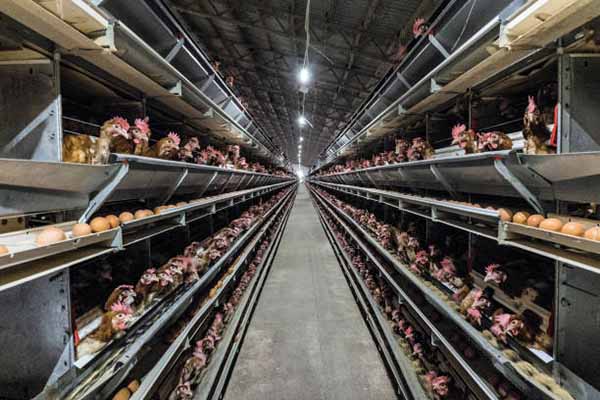How to Start a Small Chicken Farm at Home: A Practical Guide
Time : 2025-04-15
Starting a small chicken farm at home is a fantastic way to enjoy fresh eggs, the satisfaction of farm life, and maybe even some extra income. Whether you’re looking to raise a few chickens for personal use or start a micro-farm business, this guide will help you get started. Let’s dive right in!
Planning Your Chicken Farm
1. Choose Your Location
The first step in starting your small chicken farm is to pick the perfect spot. Look for a quiet area of your home that isn’t too close to noise pollution or other distractions. The chickens need plenty of room to roam, but it also needs to be close enough to your home for convenience.
What to Consider:
– Proximity to your home for daily maintenance
– Access to sunlight and fresh air
– Space for pens and coops
– Security to prevent predators
2. Select the Right Chicken Breed
Different chicken breeds are suited for different climates, egg production, and personality. Consider these factors when choosing your breeds:
Common Breeds for Small Chicken Farms:
– Rhode Island Reds: Great for laying and are quite hardy.
– Orpingtons: Excellent for winter laying due to their fluffy plumage.
– Ameraucanas: Produce blue eggs and are quite charming.
– Wyandottes: Great dual-purpose birds that lay well and can be used for meat.
Setting Up Your Coop and Run
3. Build or Buy a Coop
Your coop is where your chickens will sleep and roost. It should be secure, weatherproof, and well-ventilated. Here’s a basic layout:
– Flooring: Use wooden planks or bricks for easy cleaning and comfort.
– Roosting Bars: At least one for every four chickens, angled at 45 degrees.
– Nesting Boxes: One box per two to three hens, lined with straw.
– Ventilation: A few vents for fresh air, but ensure it’s not too drafty.
Optional Additions:
– Automatic waterers
– Feeder
DIY vs. Pre-made: Building your own coop can be a great project and save you money, but a pre-made coop might be quicker and easier, especially if you’re not handy with tools.
4. Create a Secure Run
The run is where your chickens will spend most of their time when they are not roosting in the coop. It should be spacious and secure from predators:
– Materials: Use chicken wire for the perimeter to deter digging predators.
– Size: Ideally, give each chicken 2-4 square feet in the run.
– Flooring: Grass or woodchips help keep the area clean.
– Cover: A tarp or roof can provide shade and protection from rain.
Maintenance and Care
5. Feed Your Chickens
A well-balanced diet is crucial for healthy chickens. Here’s a basic rundown:
– Layer Pellets: Formulated specifically for laying hens.
– Green Vegetables: Limit to no more than 10% of the diet to avoid nutrient imbalance.
– Scratch Grains: Can be given as a treat in small amounts.
– Clean Water: Always provide fresh water, changed daily.
Common Diseases: Keep an eye out for signs of disease such as diarrhea, lack of appetite, and weakness. If you notice something, seek veterinary care for your flock.
6. Monitor the Health of Your Flock
Regular check-ups can help you catch and treat health issues before they become serious. Look for:
– Weight Loss
– Change in Feather Quality
– Changes in Behavior
– Discharges from Noses or Eyes
Selling Eggs and Meat
7. Market Your Products
If you plan to sell eggs or meat, find out what the laws and regulations are in your area. Some places require permits and inspections. Here are a few ideas for marketing:
– Direct Sales: Set up a small farm stand or sell at local farmers markets.
– Community Supported Agriculture (CSA): Offer a subscription to customers who receive a regular share of eggs or chicken.
– Online Platforms: Use social media and online marketplaces to reach a wider audience.
Tips and Final Thoughts
– Start Small: You don’t need a lot of chickens to start. Start with a few and grow your flock as you gain experience.
– Educate Yourself: Keep learning about chicken care, farming techniques, and the laws in your area.
– Community Engagement: Connect with local farming groups and learn from others.
Starting a small chicken farm at home is a rewarding endeavor. It might be a bit of a challenge, but the joy of fresh eggs, the beauty of the chickens, and the satisfaction of doing it yourself will make it all worth it.
—












